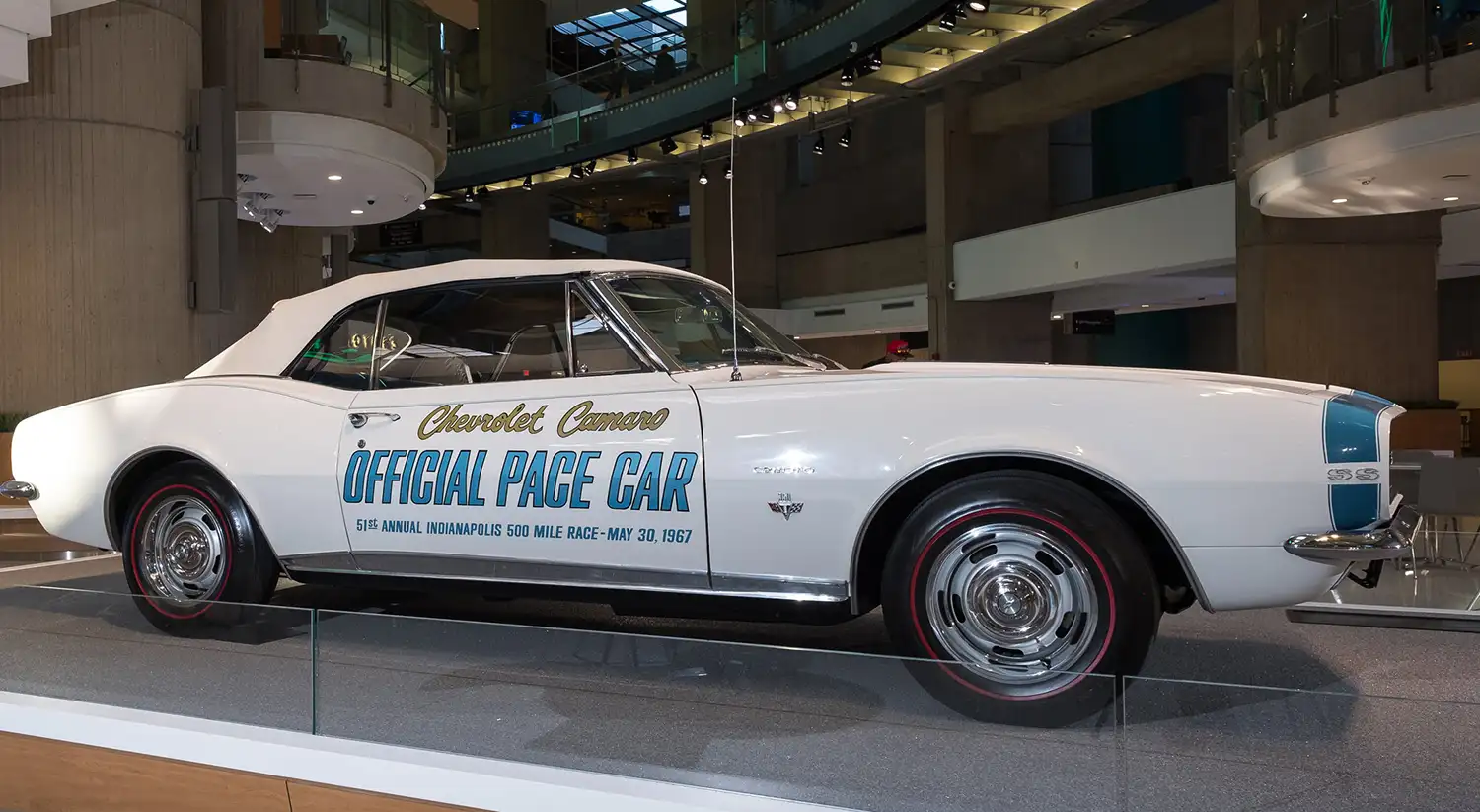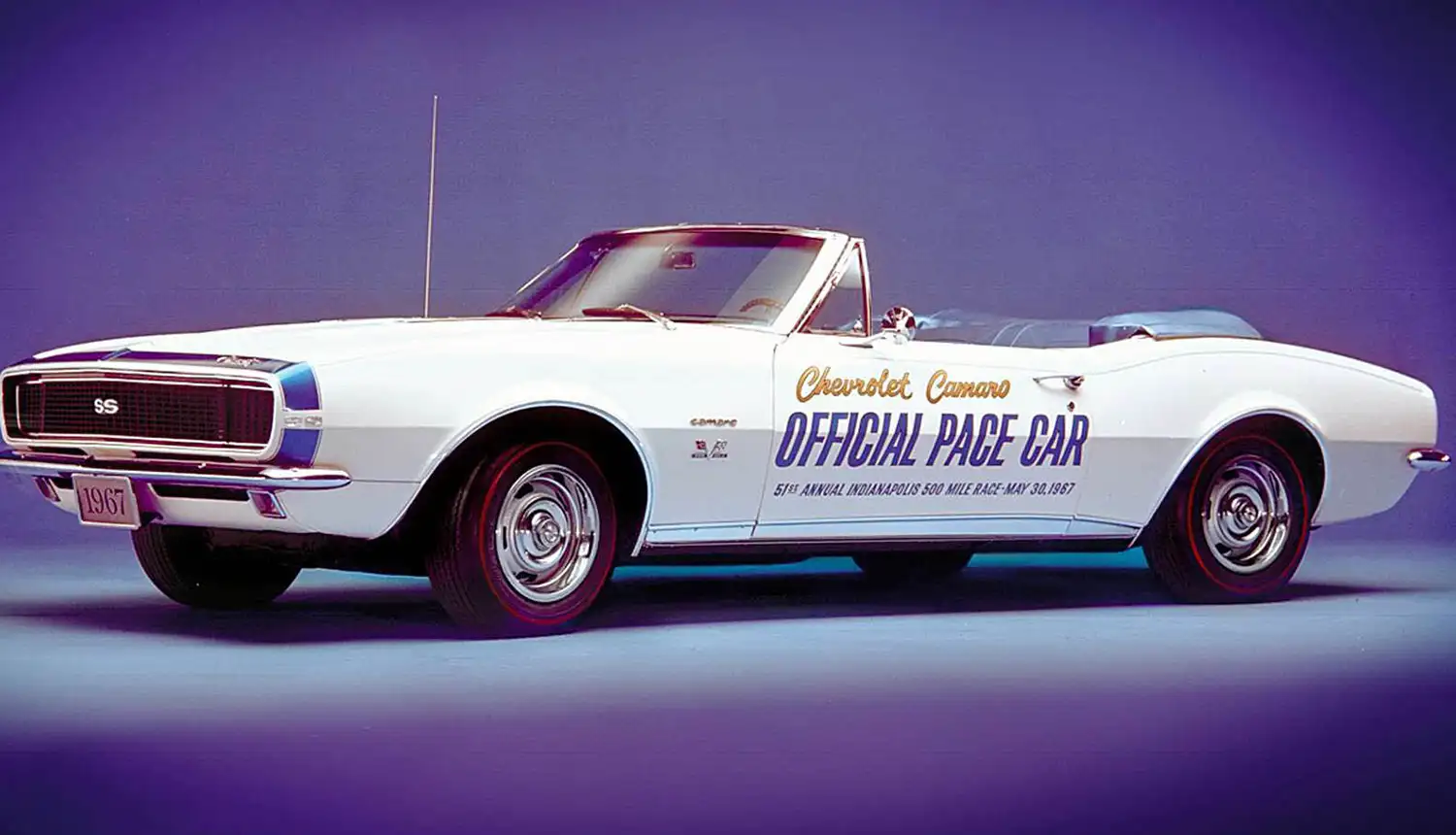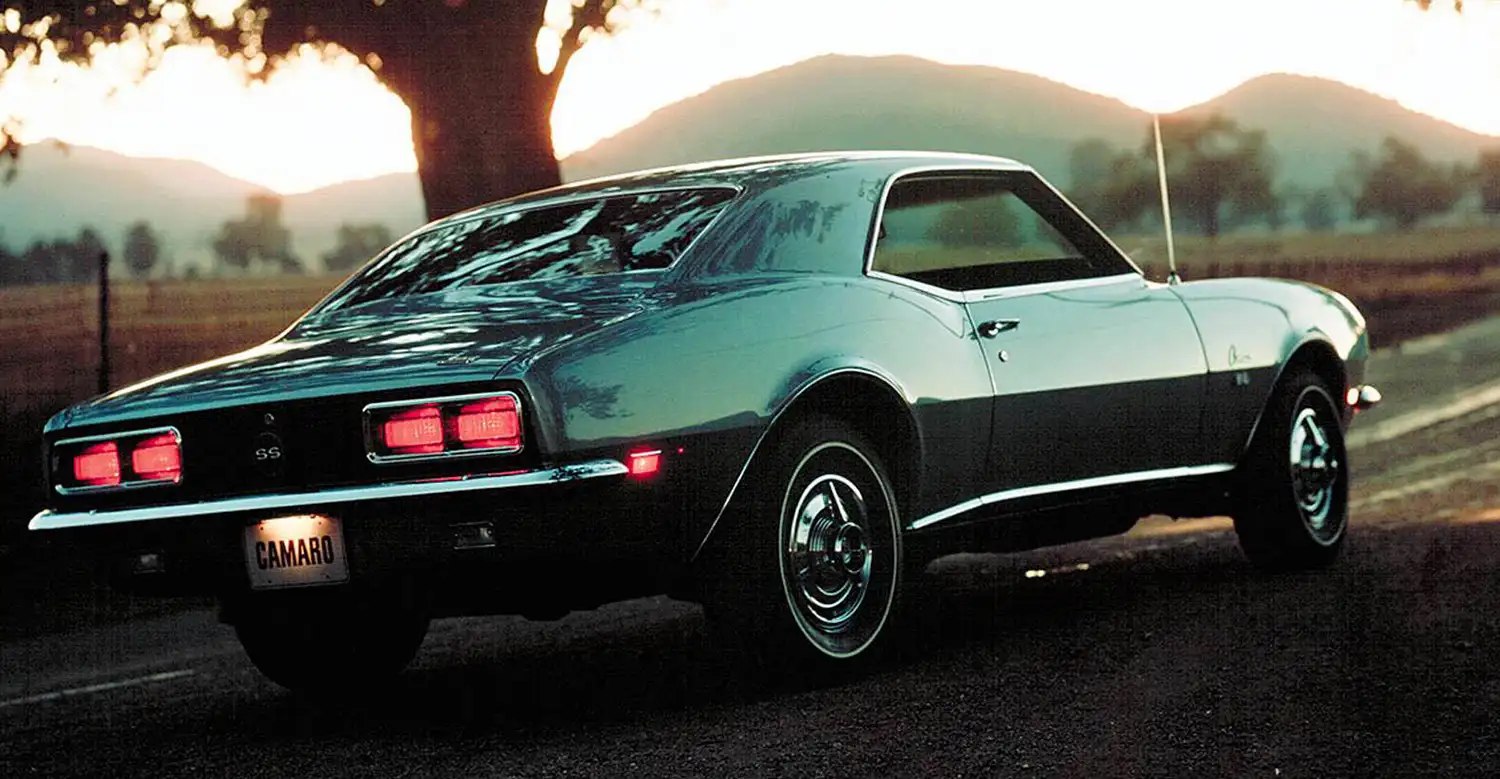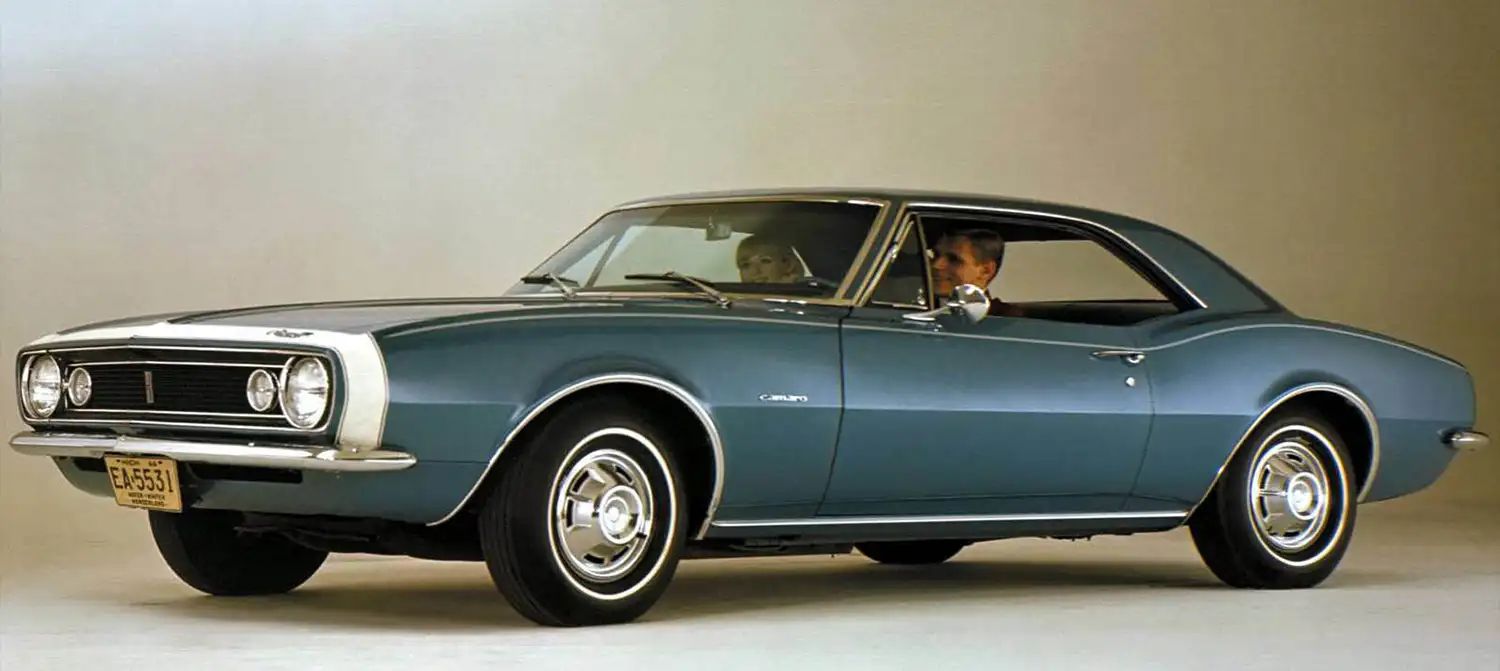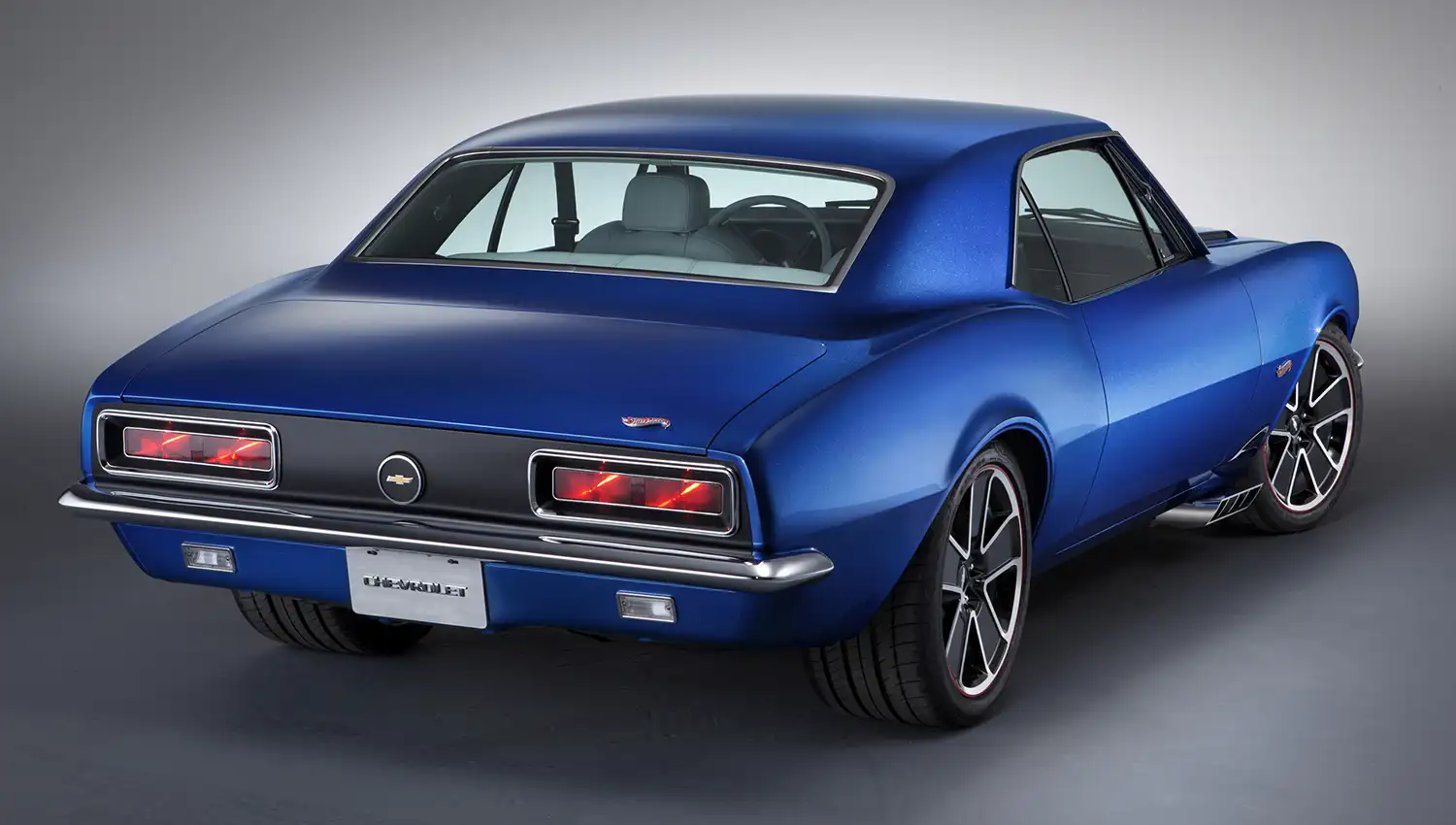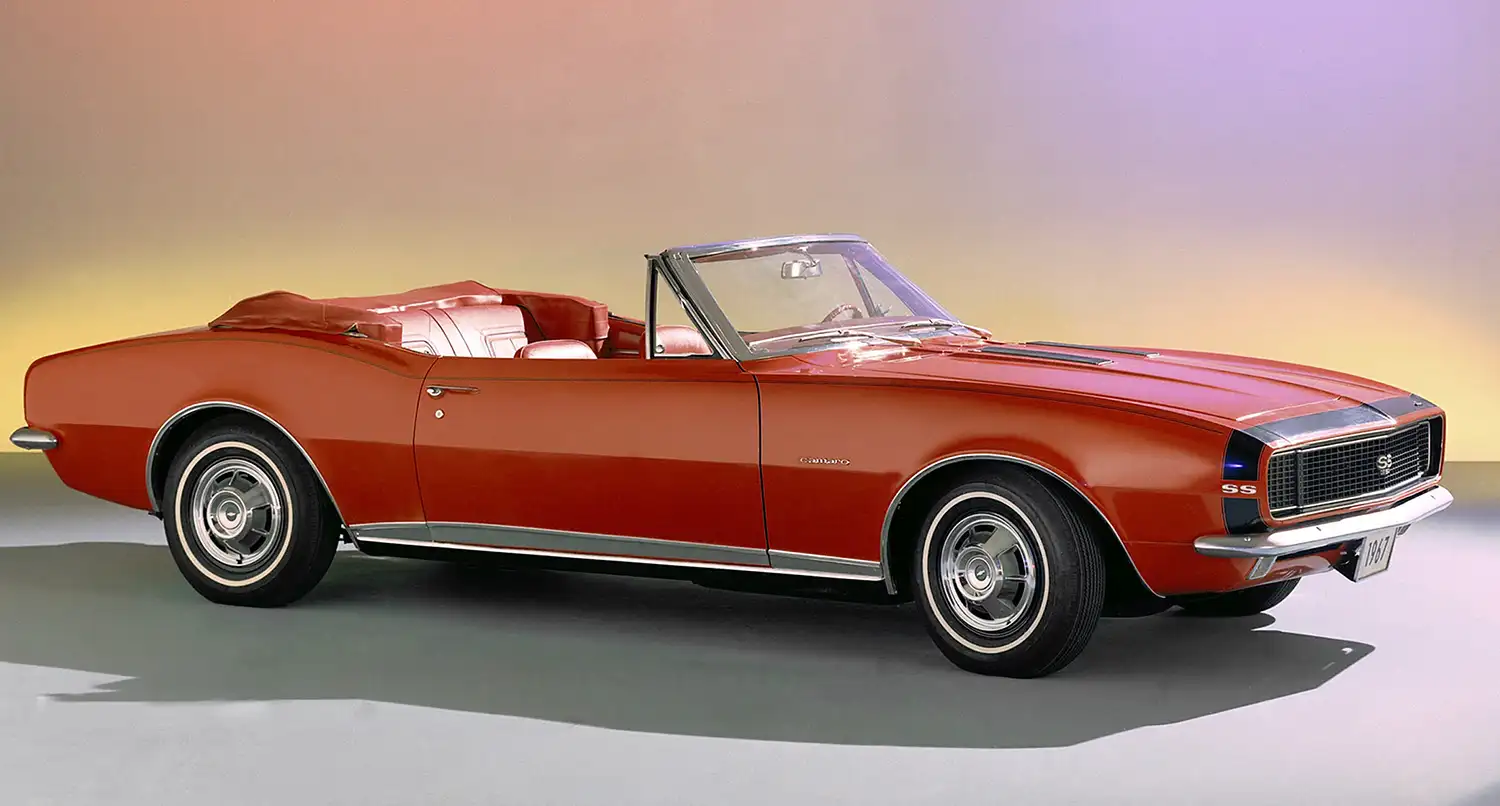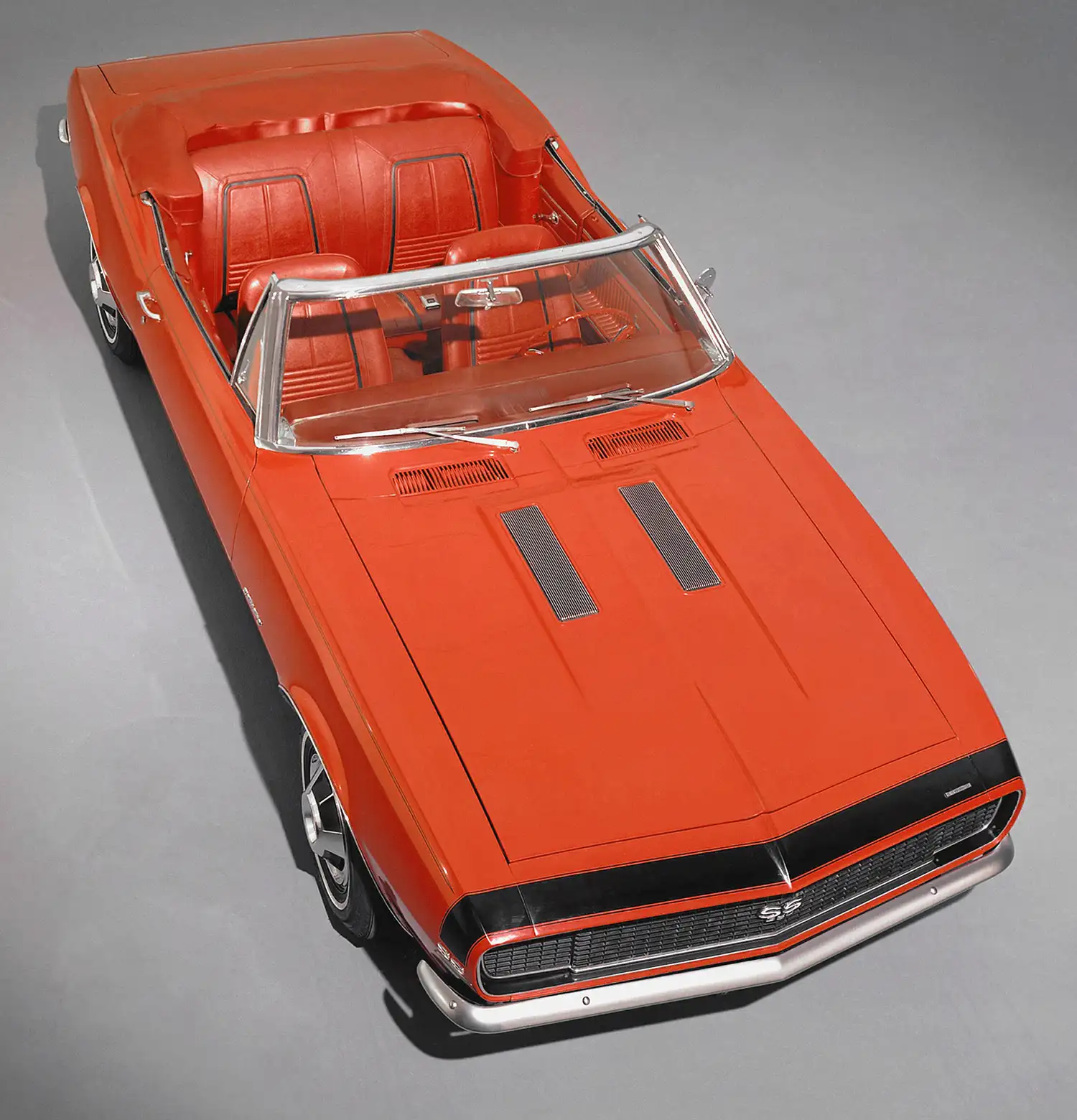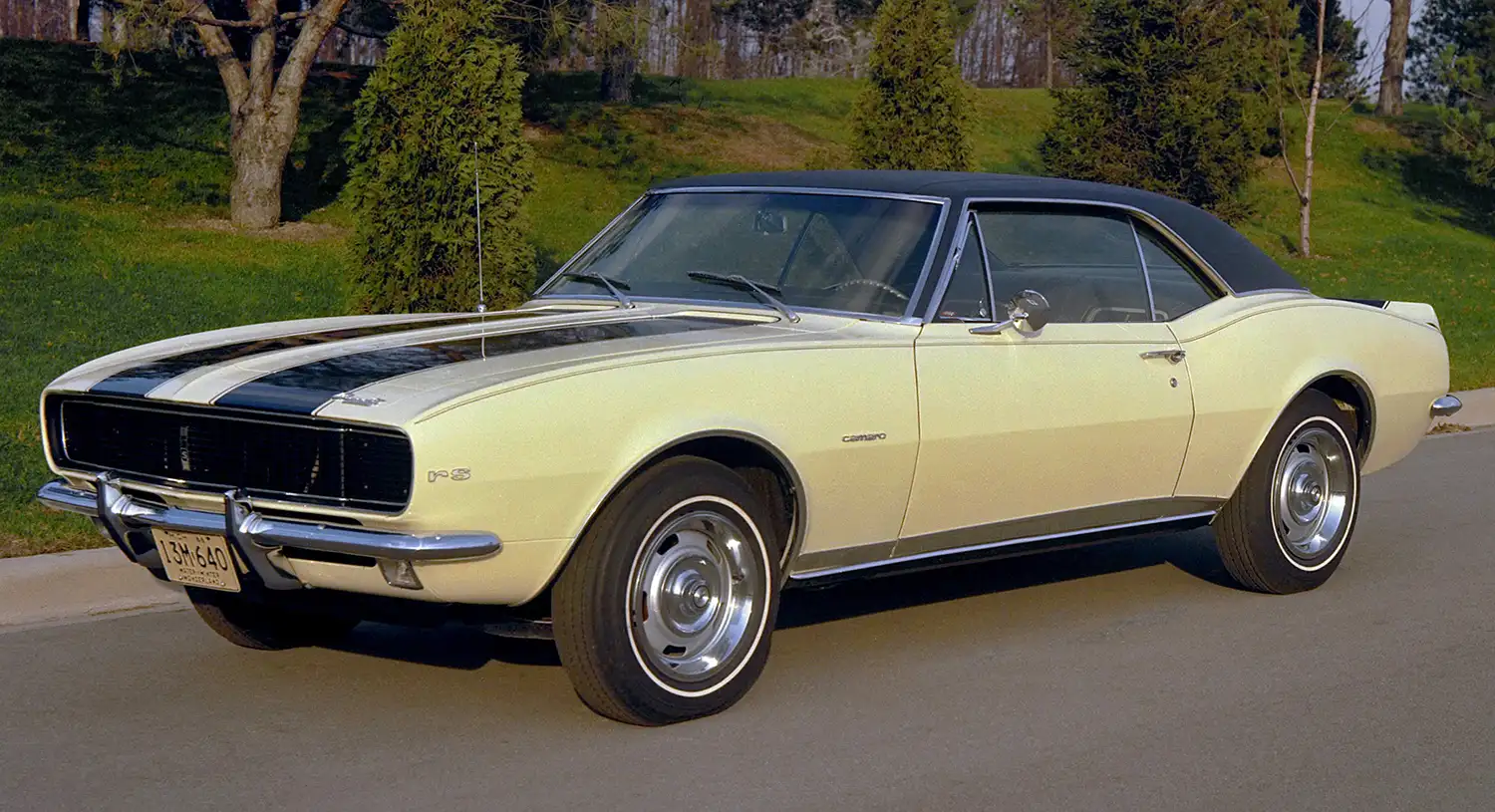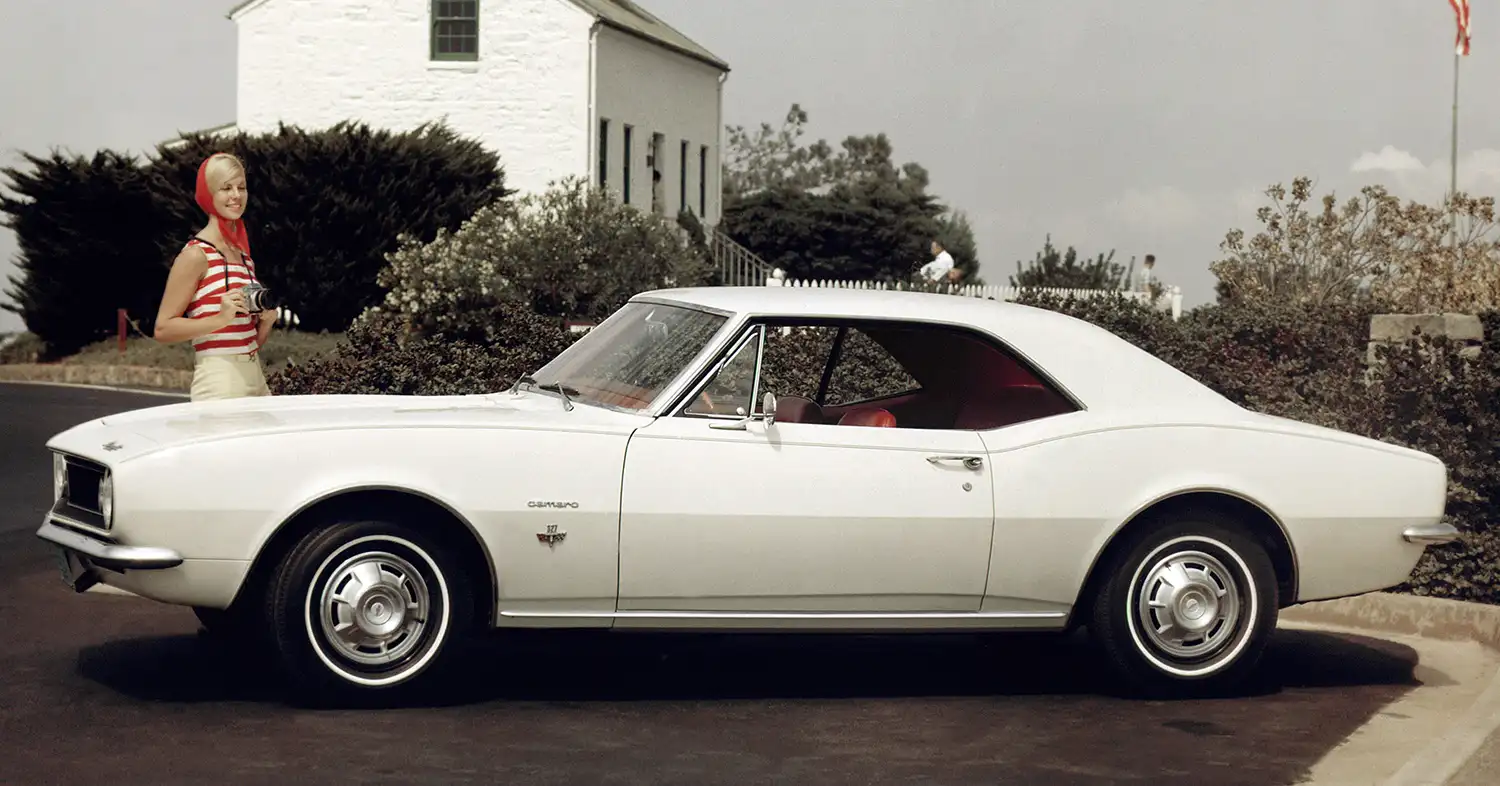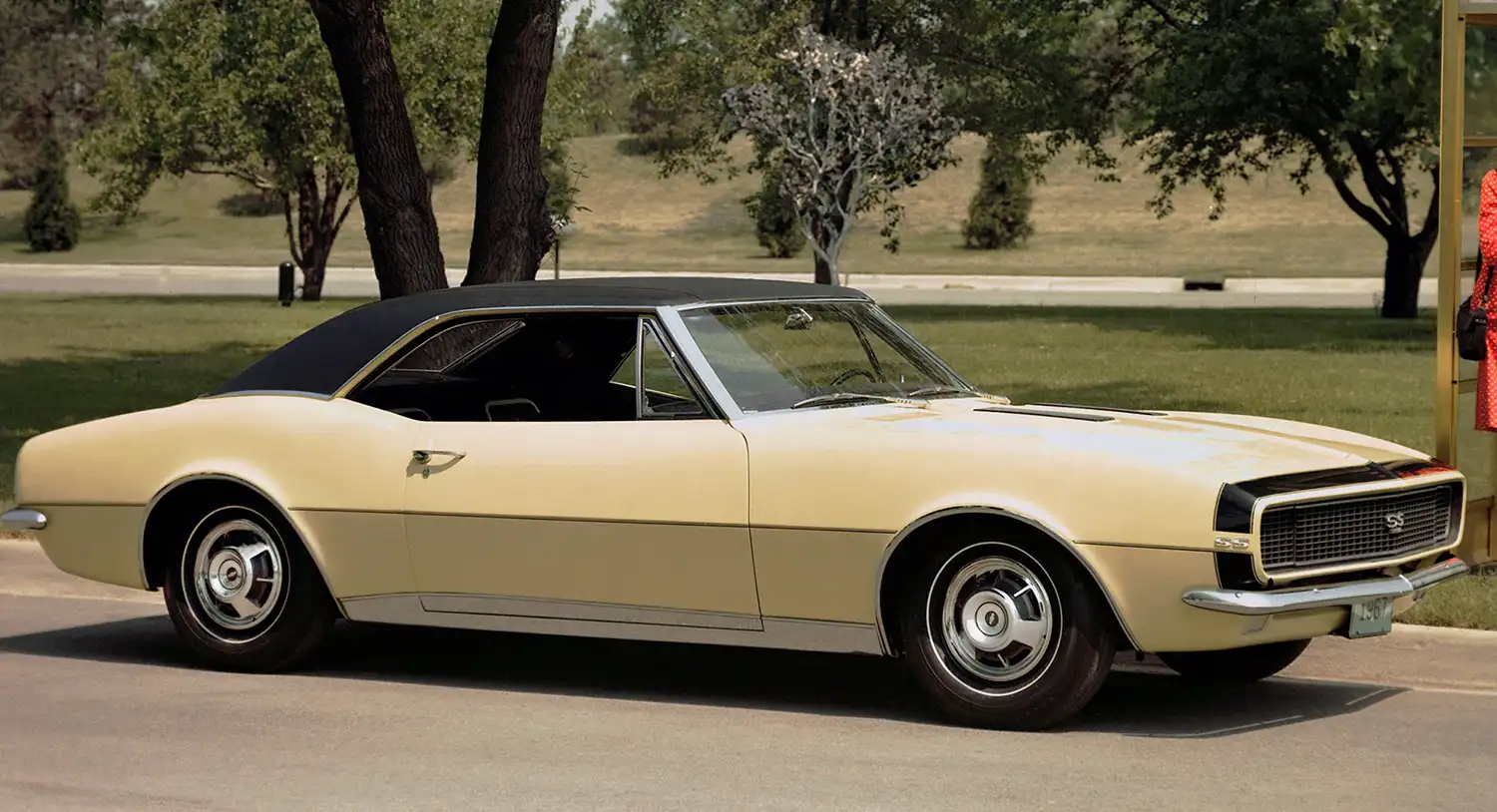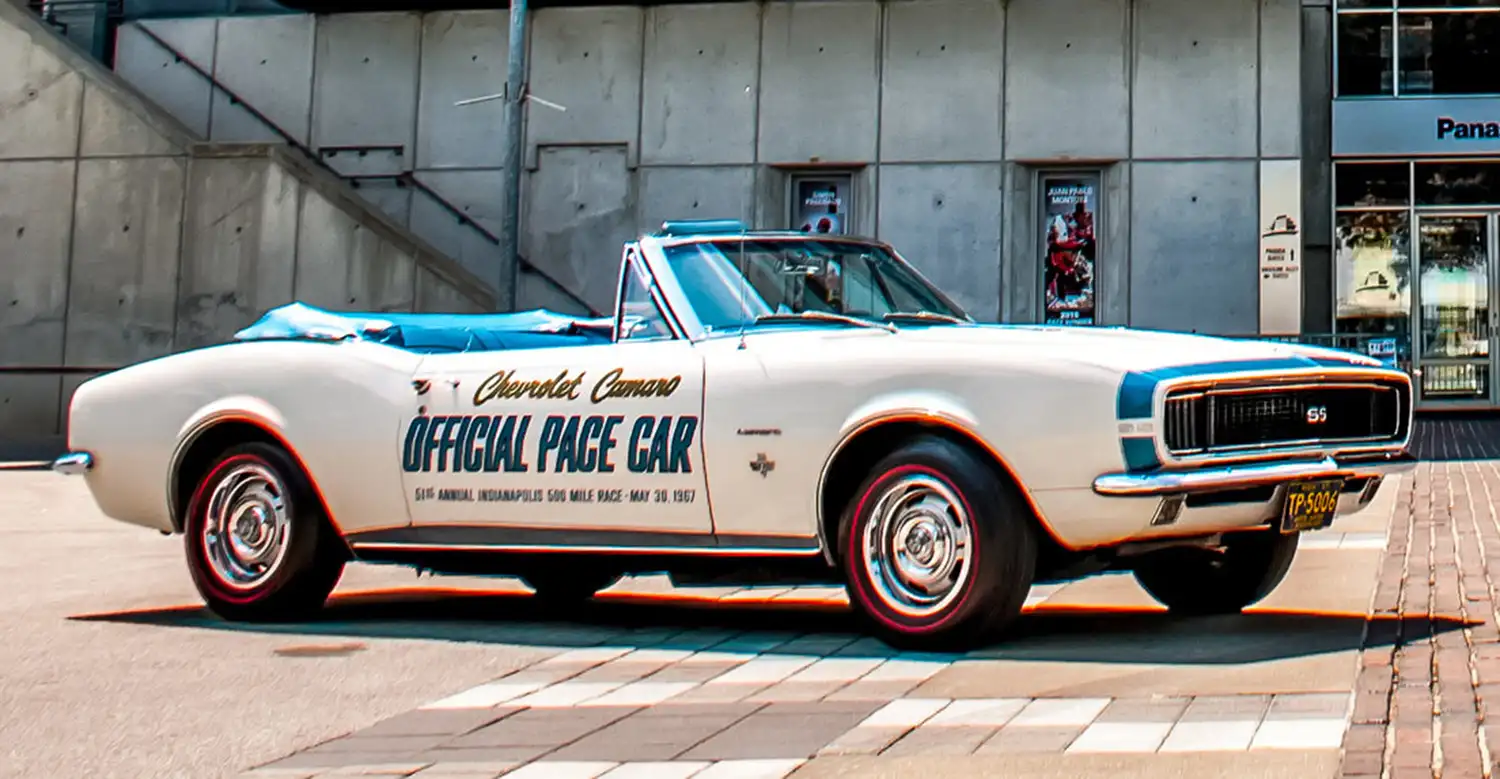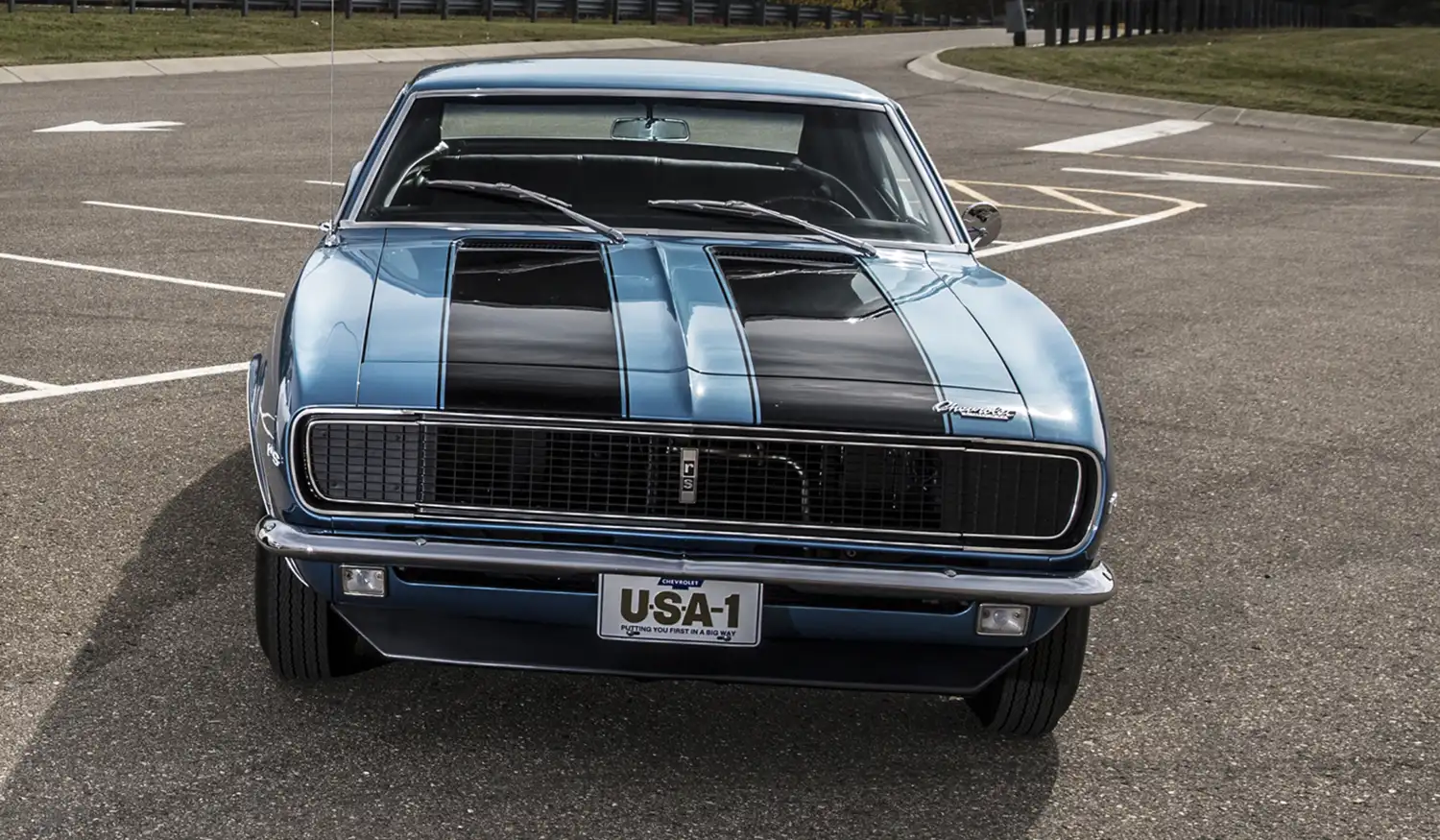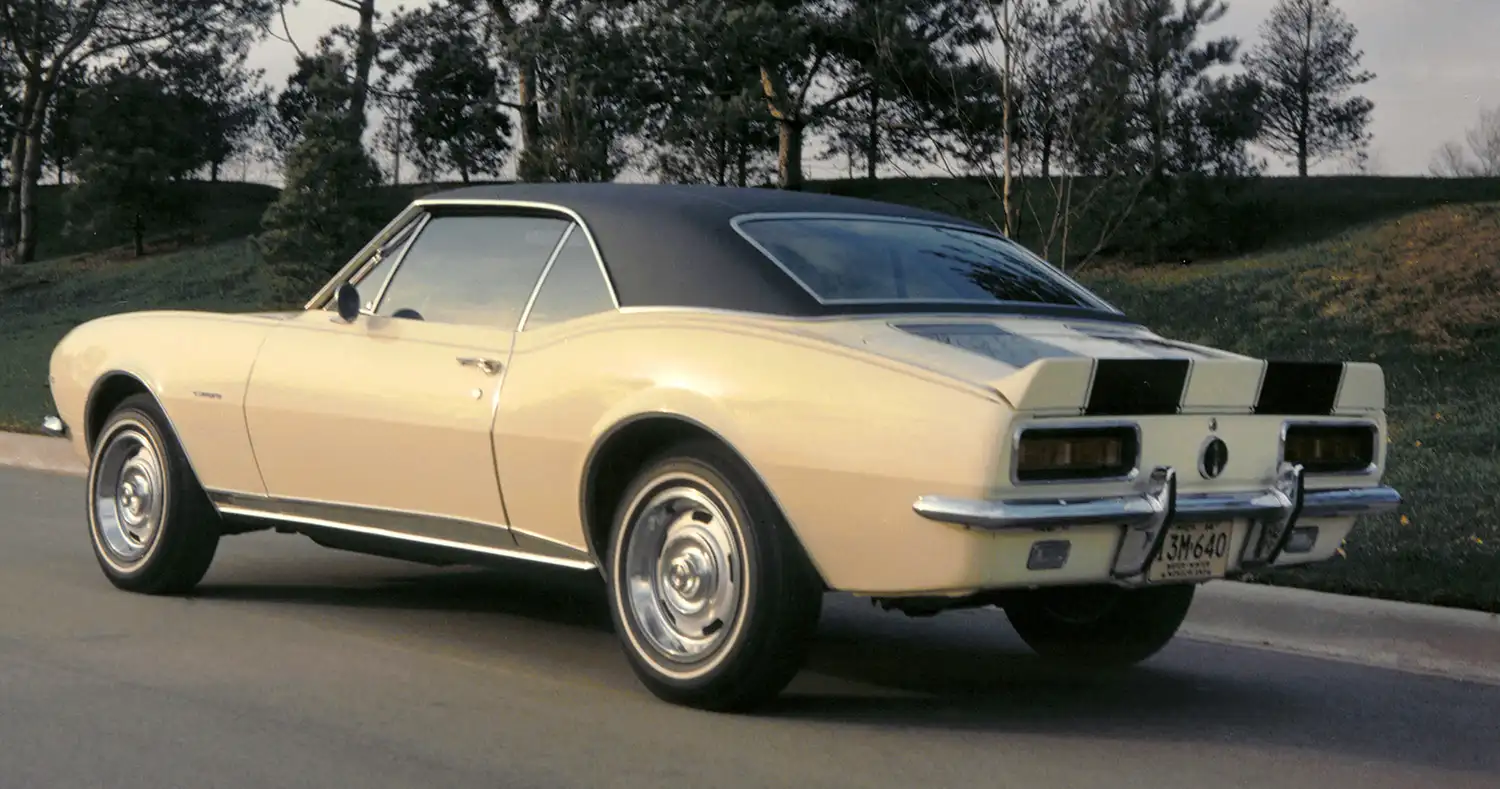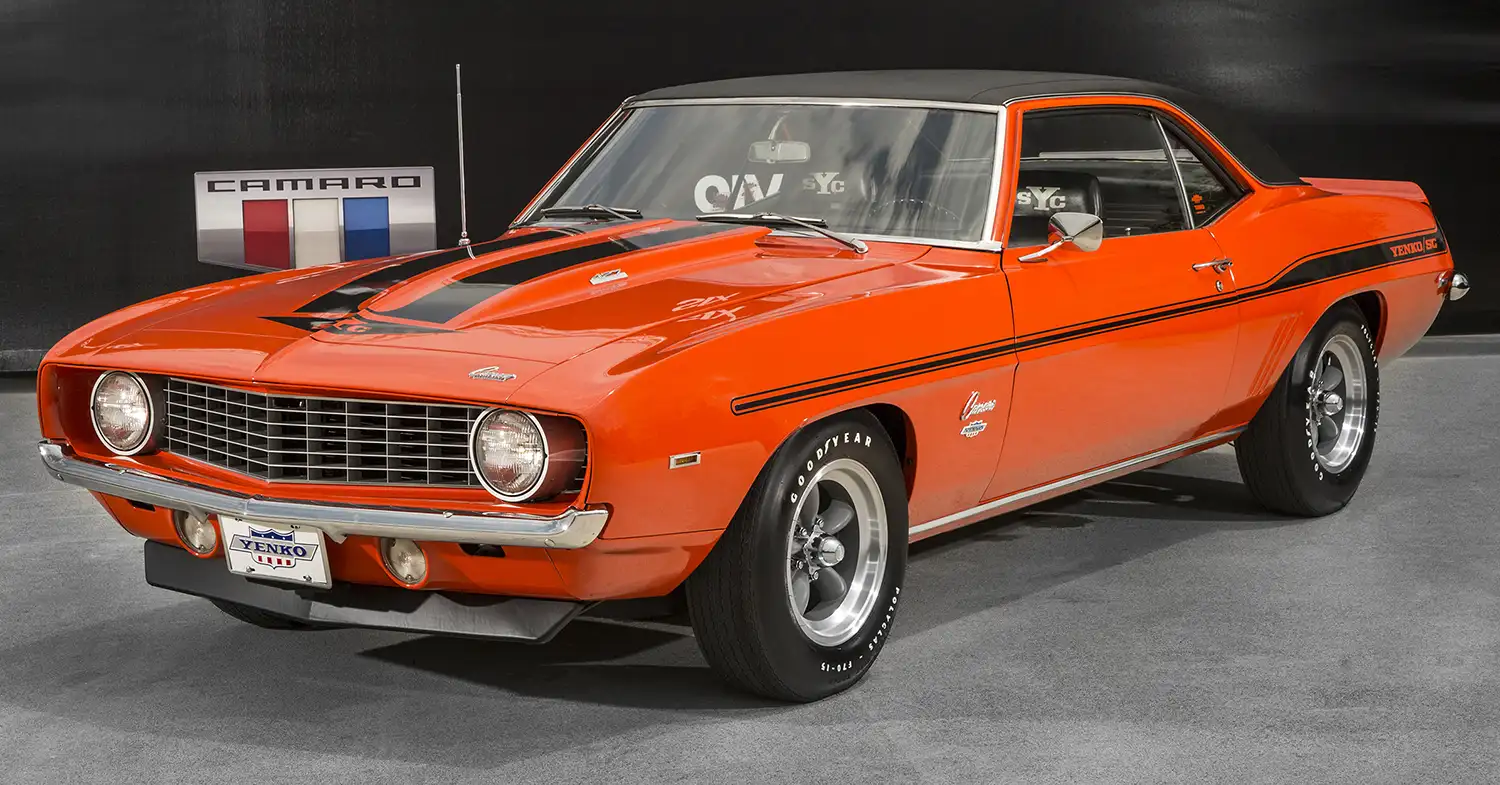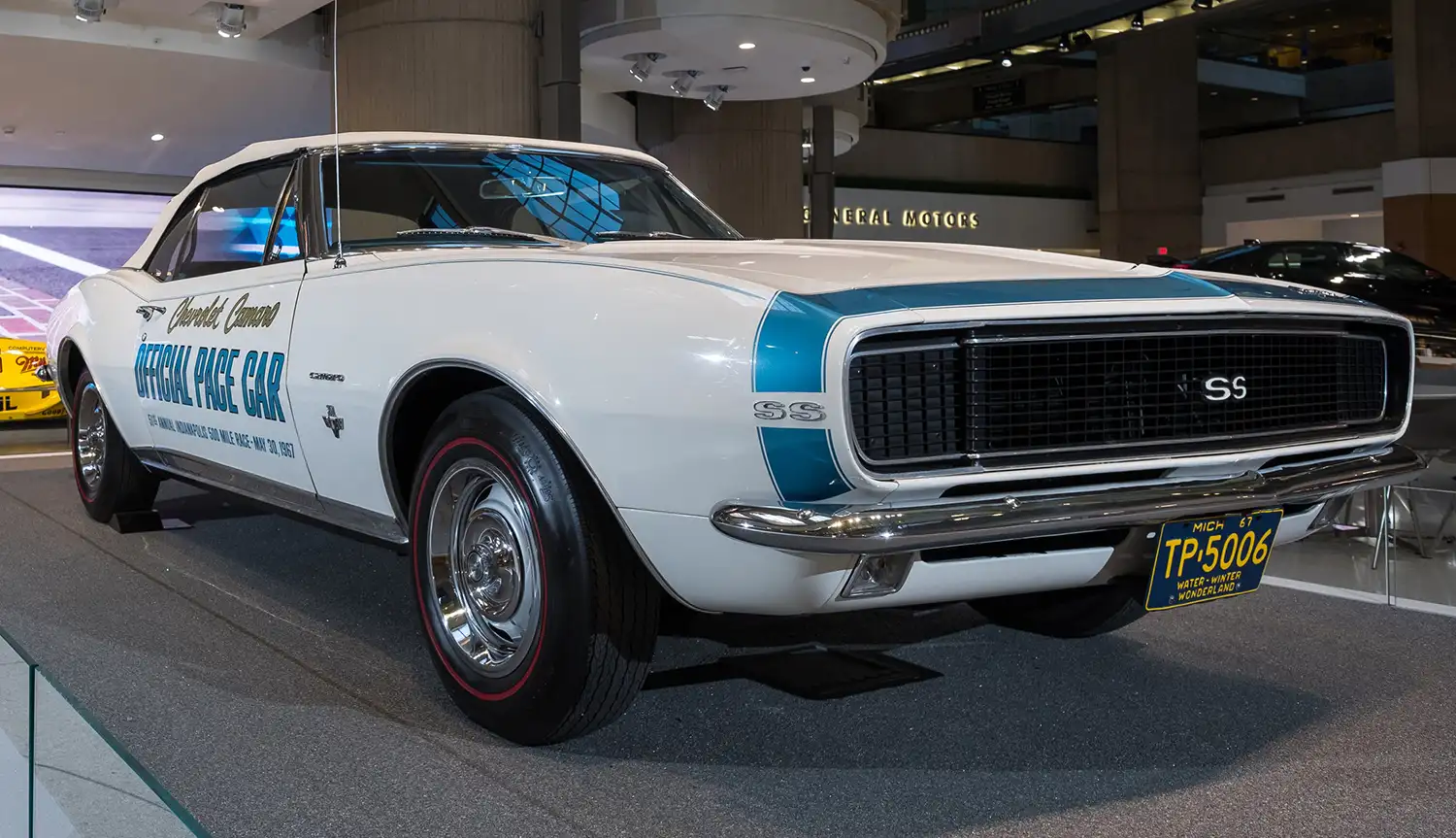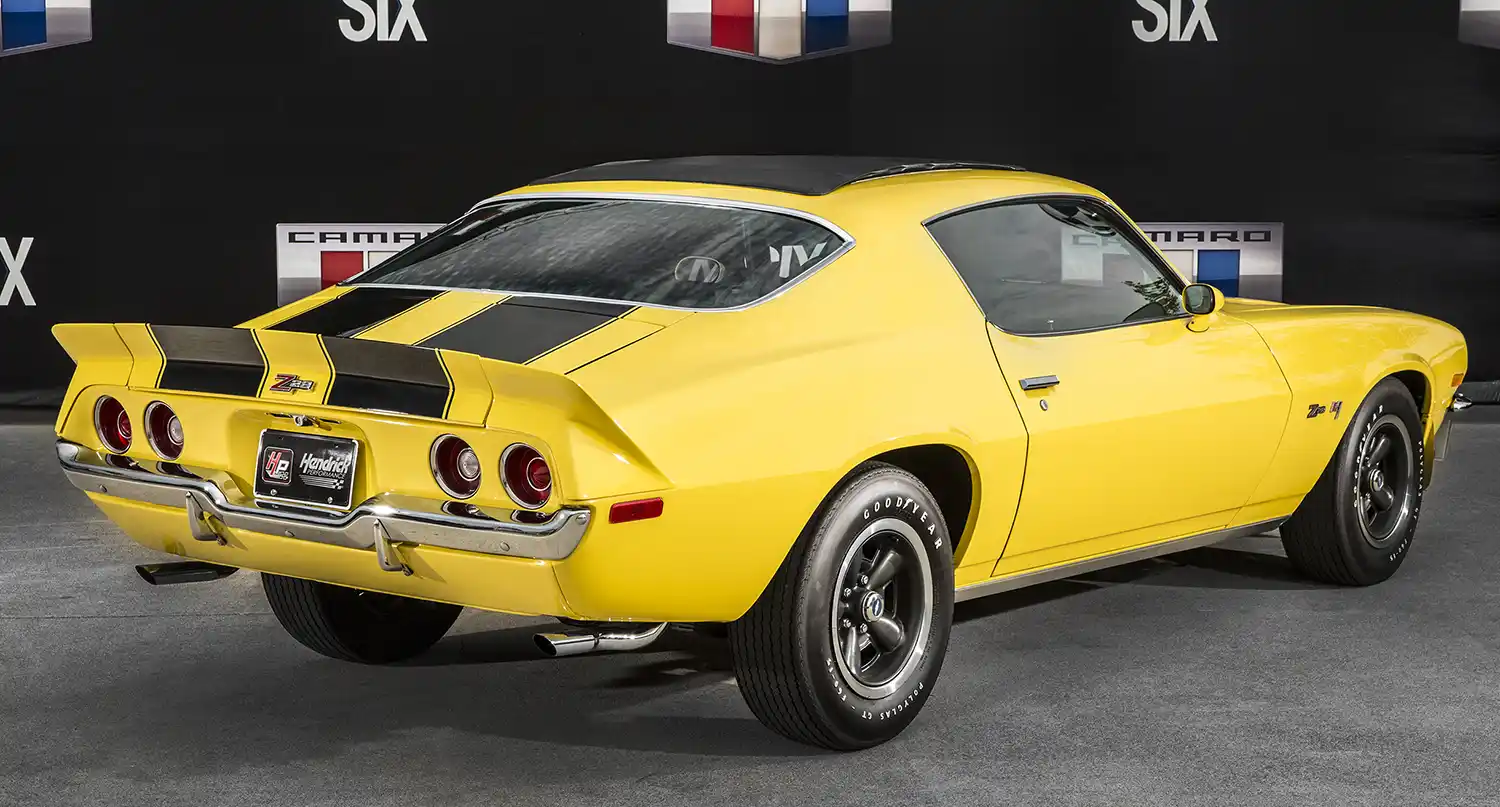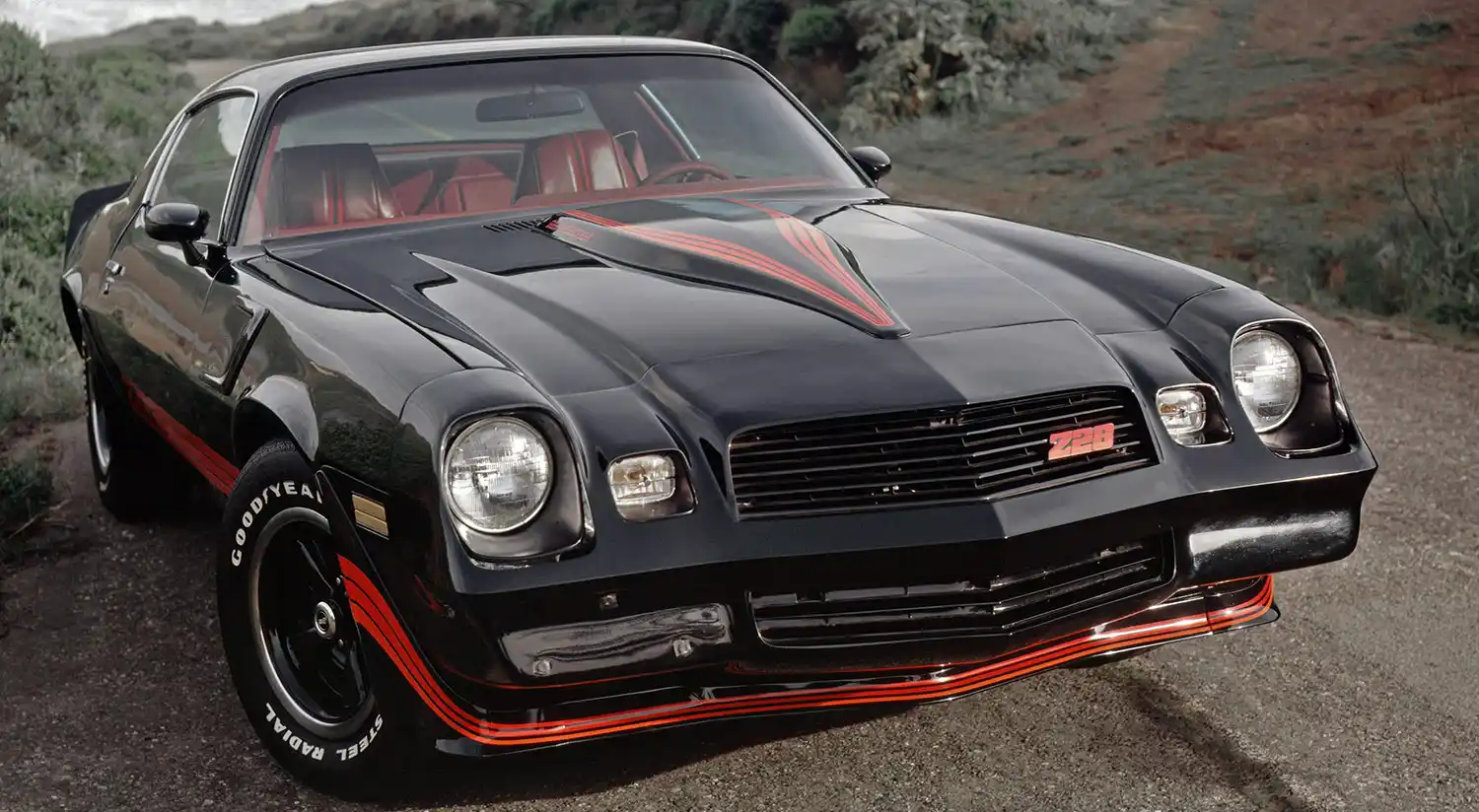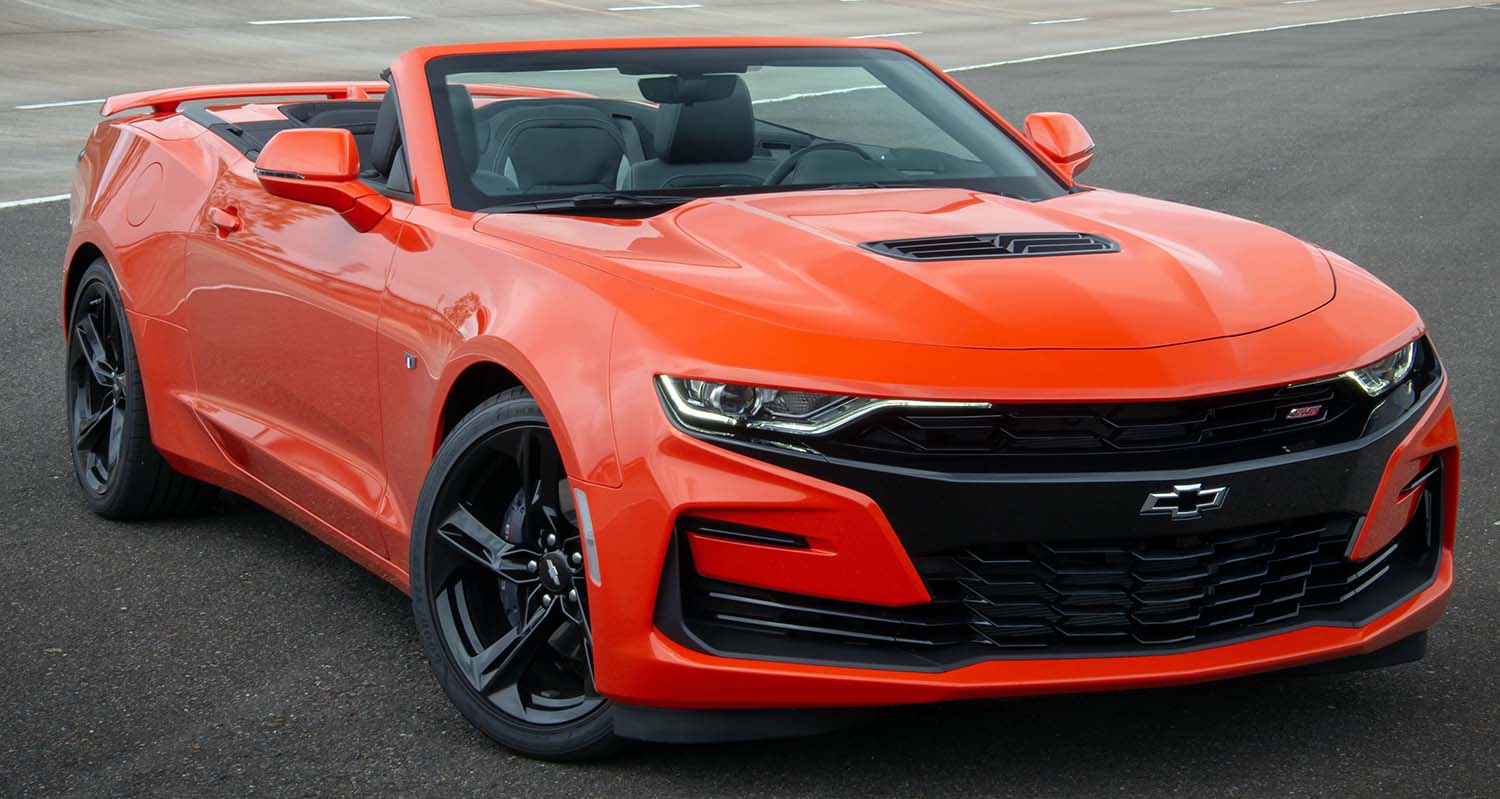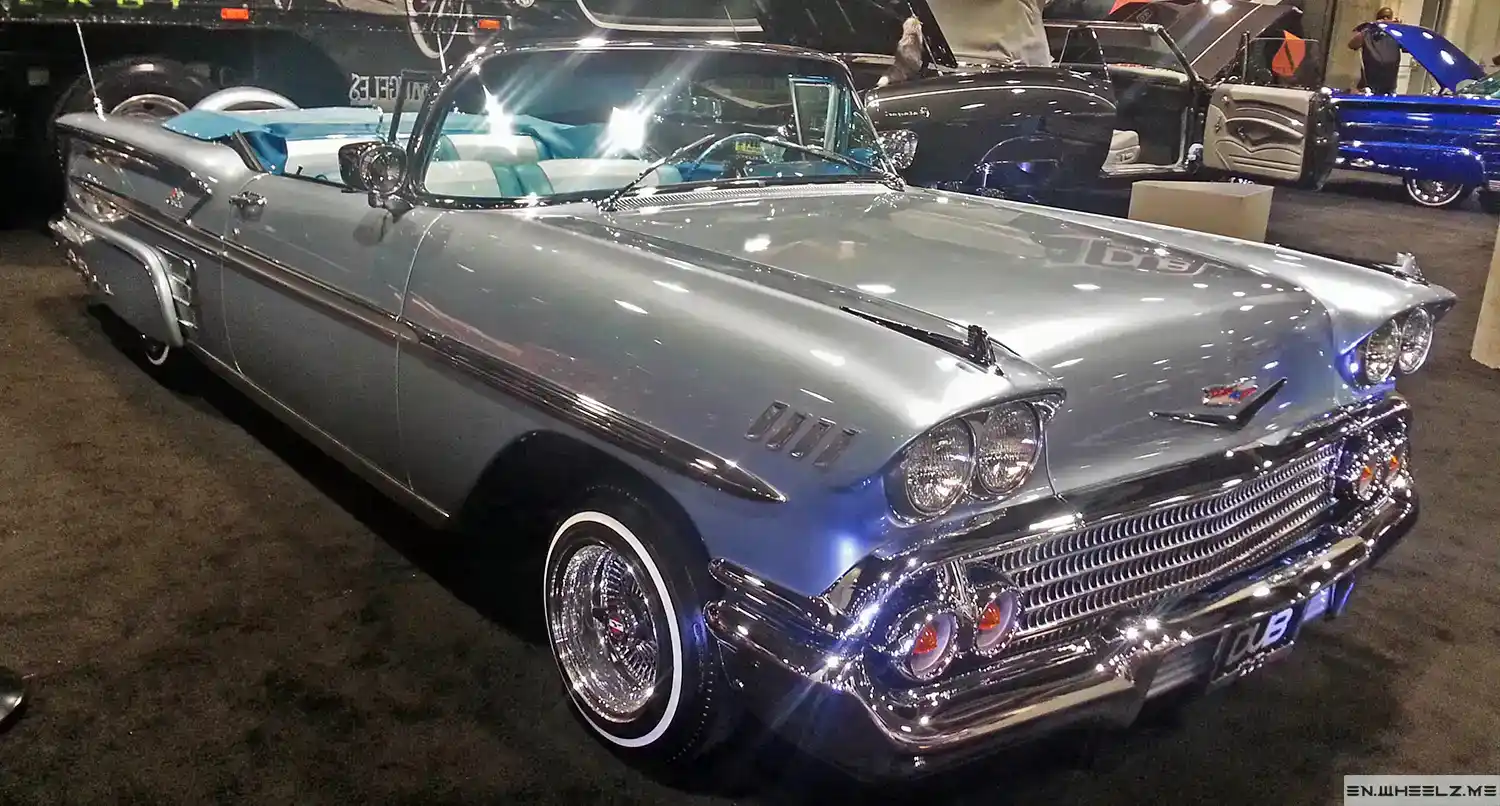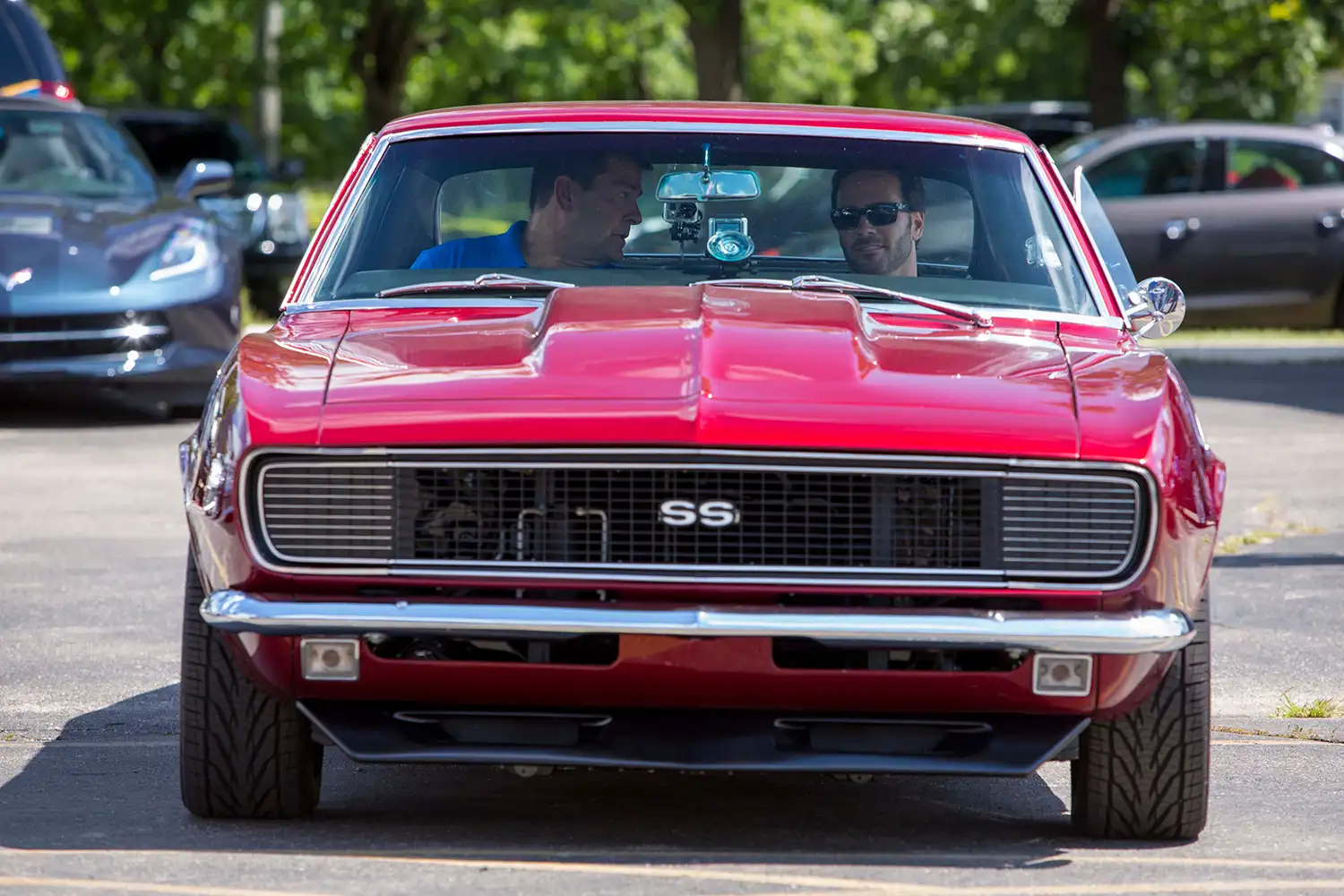
The Chevrolet Camaro was introduced in North America by the Chevrolet Motor Division of General Motors at the start of the 1967 model year as competition for the Ford Mustang. Camaro advertising would first be found on AM top-40 stations of the day – stations which appealed to young adults. Although it was technically a compact car (by the standards of the time), the Camaro, like the entire class of Mustang competitors, was soon known as a pony car. It may also be classified as an intermediate touring car, a sports car, or a muscle car. The car shared the same platform and major components with the Pontiac Firebird, also introduced in 1967. Production of both cars ceased in 2002 with only the Camaro going back into production in 2009.
Though the car’s name was contrived with no meaning, GM researchers reportedly found the word in a French dictionary as a slang term for “friend” or “companion.” In some automotive periodicals before official release, it was code-named “Panther.” Historical examples exist of Chevrolet product managers being asked by the automotive press “what is a Camaro?”, with the tongue-in-cheek answer being “a small, vicious animal that eats Mustangs,” a sideways reference to the competing Ford Mustang.
The Camaro was the flagship for Chevrolet, and was for many years one of its most popular models. If its frequent inclusion in automotive enthusiast magazines is any indication, the Chevy Camaro is one of the most popular cars for modification in automotive history.
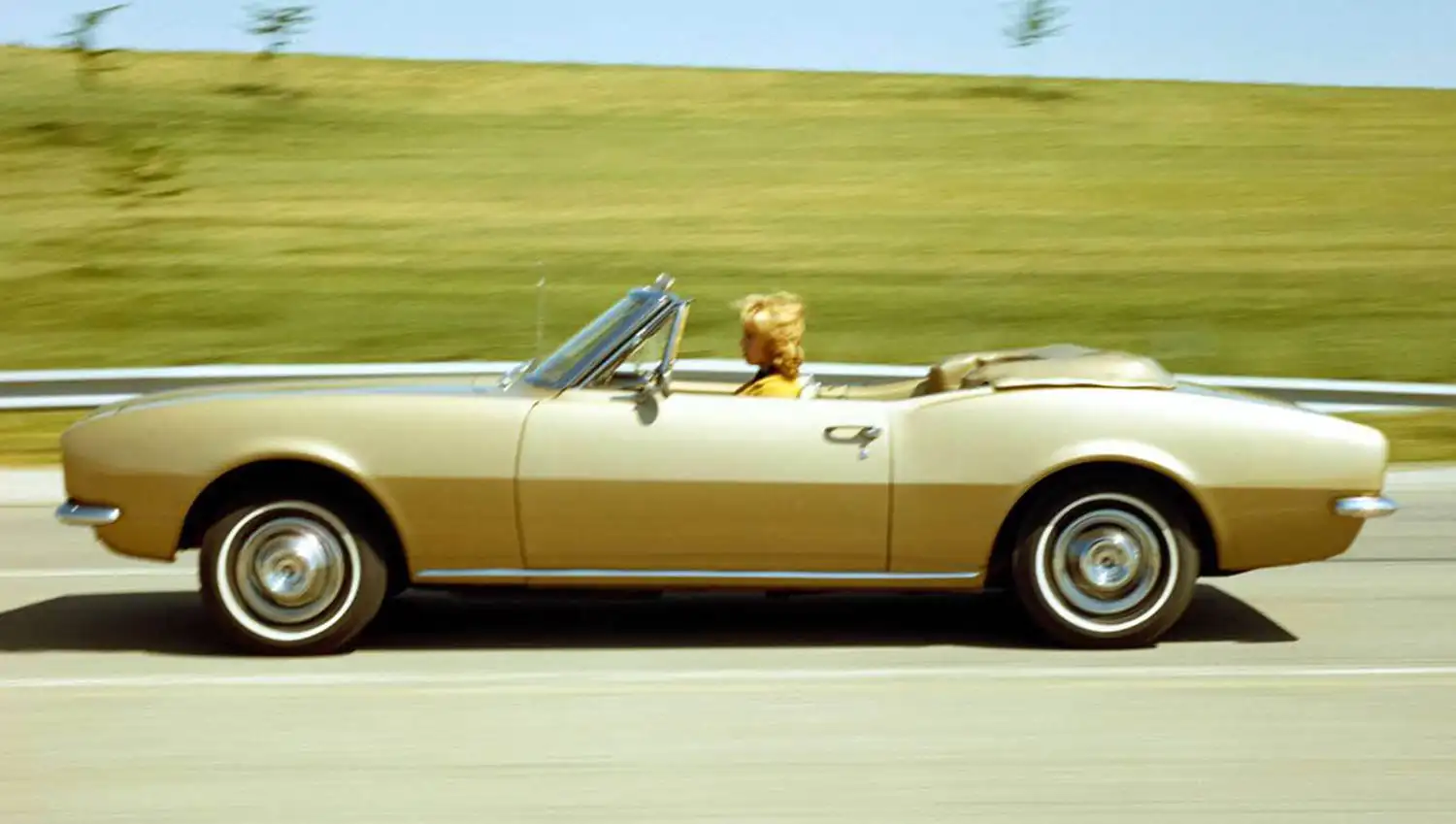
1967
Sharing some mechanicals with the upcoming 1968 Chevrolet Nova, the Camaro featured a unibody structure, combined with a sub-frame supporting the front end. Chevrolet offered the car in only two body styles, a coupe and convertible. Almost 80 factory and 40 dealer options including three main packages were available.
The RS included many cosmetic changes such as RS badging, hidden headlights, revised taillights, and exterior rocker trim.
The SS included a modified 5.7L (350) V8 engine (first engine of that size by Chevrolet), and the L35 396(6.5L) big-block V8 was also available. The SS featured non-functional air inlets on the hood, special striping and SS badging on the grille, gas cap, and horn button. It was possible to order both the SS and RS to receive a Camaro SS/RS. In 1967, a Camaro SS/RSS convertible with a 396(6.5L) engine paced the Indianapolis 500 race.
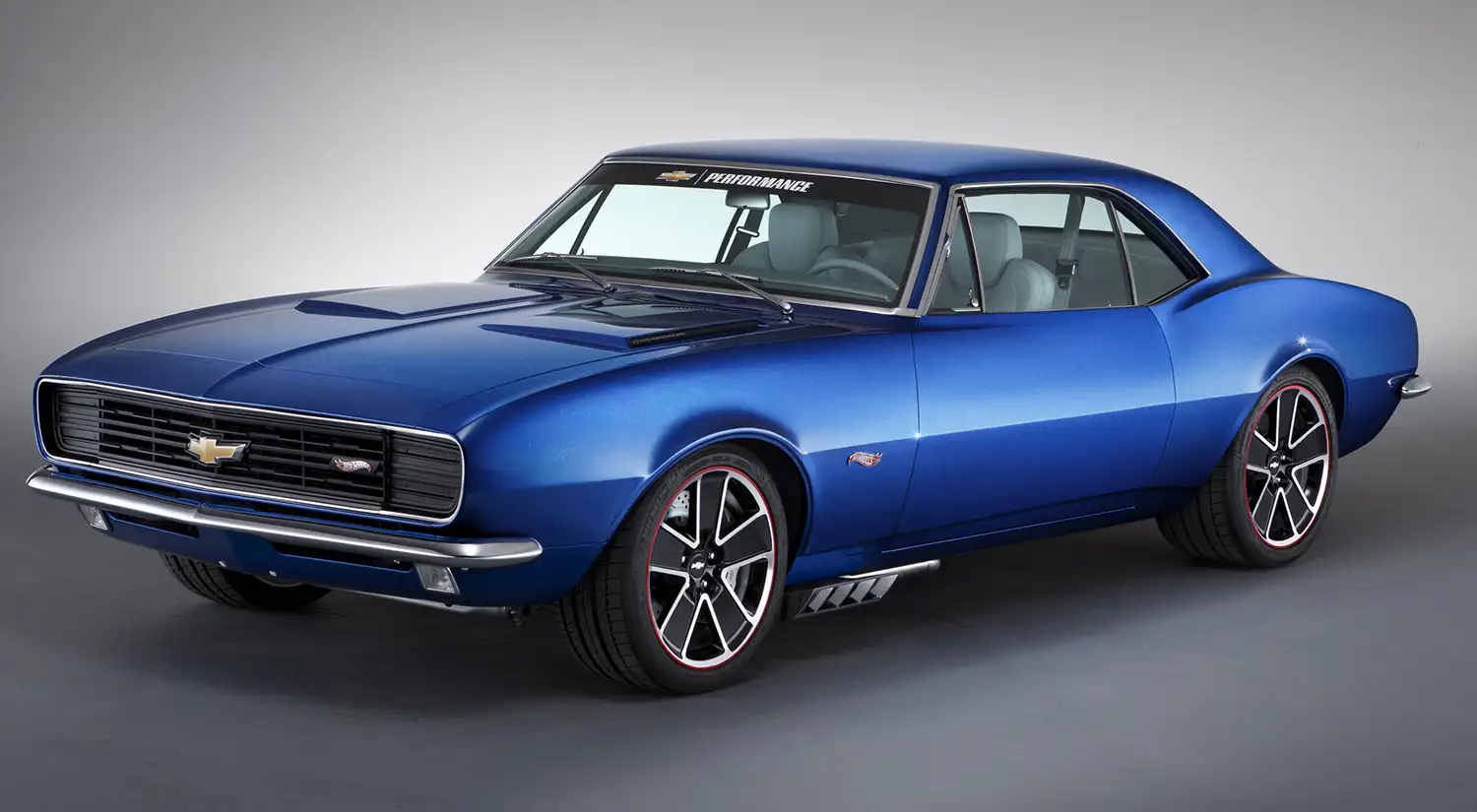
The ‘Z/28’ option code was introduced in December 1966 for the 1967 model year. This option package wasn’t mentioned in any sales literature, so it was unknown to most buyers. The only way to order the Z/28 was to order a base Camaro with the Z28 option, front disc brakes, power steering and a Muncie 4-speed manual transmission. The Z/28 featured a unique 302(4.9L) small-block engine, designed specifically to race in the Trans Am racing series (which required engines smaller than 305(5.0L) and public availability of the car. Advertised power of this engine was listed at 290hp (216kW) while actual dynometer readings rated it at 360 to 400hp (269 to 298kW). The Z/28 also came with upgraded suspension and racing stripes on the hood. It was possible to combine the Z/28 package with the RS package. Only 602 Z/28s were sold in 1967. Contrary to popular belief, 1967 Z/28s did not have raised cowl induction hoods like 1969 Z/28s did. In 1967, the 1967 Z28 received air from a cowl plenum duct attached to the side of the air cleaner that ran to the firewall and got air from the cowl vents. The hood was a standard flat hood. 1967 Z/28s had 15 in. Rally wheels, while all other 1967 Camaros had 14 in. wheels. The Z/28 could be combined with the RS appearance package.
The Camaro’s standard drivetrain was a 3.8L (230kW) Straight-6 engine rated at 140hp (104kW) and backed by a Saginaw three-speed manual transmission. A Muncie four-speed manual was also available. The two-speed “Powerglide” automatic transmission was a popular option in 1967 and 1968 until the three-speed “Turbo Hydra-Matic 350” replaced it starting in 1969. The TH350 was also an option on SS396 cars from late 1967 onwards.
The 290hp (216kW), 5.7L (350) V8 first saw duty in the 1967 Camaro and virtually every engine in the Chevrolet lineup was offered as an option.
Production numbers:
– RS: 64,842
– SS: 34,411
– Z28: 602
* Total: 220,906
